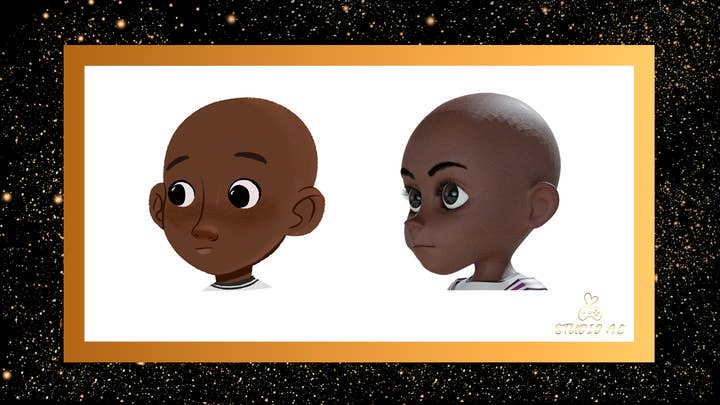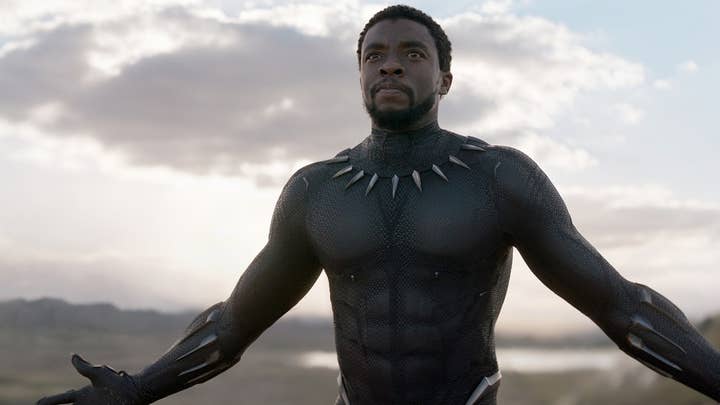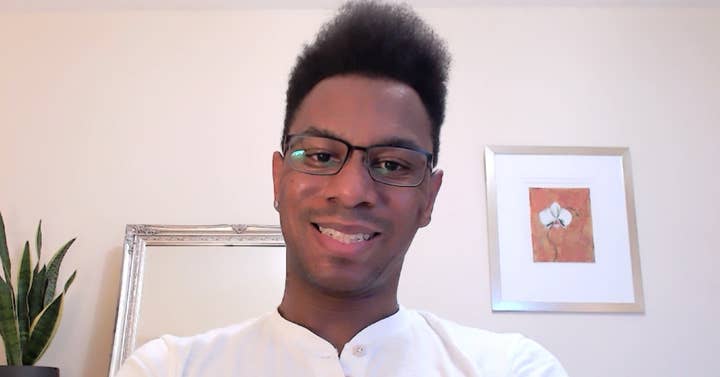Why a "Black Panther moment" is not the answer to games' diversity problem
Studio AC Games founder Adam Campbell on how improving representation in video games takes less effort, not more
It has been well-established that the games industry struggles with diversity on many fronts, whether it's behind-the-scenes or within the games themselves.
Discussions as to how this can be improved have been going on for years, and it's clear there is no quick fix to this issue. But Adam Campbell -- co-founder of racial advocacy group POC In Play, and newly formed developer Studio AC Games -- believes that boosting the representation of minorities and underserved communities is simpler than some might think.
"It actually takes more effort to make a game not diverse than to make it diverse," he observes. "Usually, when you find that a piece of media -- whether it's a game, film or TV show -- doesn't have much diversity in terms of gender roles, race, sexuality, class, and so on... usually people have shaped the products in their own image, or in the way they want to see the world, and they've excluded diversity from those products. And that might not always be done intentionally, but it's something that does tend to happen, and then we have the discussion about why it's not diverse.

"The way I look at diversity is it's a reflection of the world around us. There are thousands and thousands of stories and cultures and experiences that could be told in a medium such as video games. Diversity is around every corner of the world we live in, so trying to bring that into the products we make... we shouldn't have to ask why we are not seeing disability representation. If you walk down the street, you'll see people with different physical abilities and so on. It should just be normal for us."
This is the advice he's most keen to offer developers and publishers keen to improve the diversity of their games and their staff: "Look around the world, and ask whether your game looks like that." If going to the supermarket does not surround you primarily with white men aged 20 to 35, then why is that the picture in your video game? If your title is set outside of the big Western markets, is the location represented by any of the decision makers on your team?
Campbell aims to demonstrate this mentality with his new company, Studio AC Games. Founded last summer, it recently emerged from stealth and is currently working on a new IP for mobile and PC. Campbell remains tight-lipped about the title at this early stage, but does tell us it centres around "themes of strong personal growth," and aims to show players "the value of having diverse stories and characters, and how they can improve your own appreciation of the world around you."
Campbell has been working in the games industry for almost 12 years now, currently serving as director of product at educational games firm Azoomee -- a role he retains while working on his new venture in his free time.
"It actually takes more effort to make a game not diverse than to make it diverse"
Studio AC Games' initial project will be based on Campbell's own ideas, but in future he's keen to collaborate with developers around the world to help surface more untold stories from different regions and cultures. Even on his own project, he is working with a mix of talent from across the continents, including artists from Germany and India, a programmer in Italy, and Unity developers in Brazil.
"There's talent all over the world who can collaborate on games," he says. "I've worked digitally across continents before producing games, so I wanted to actually utilise those skills and make that the heart of what Studio AC Games does."
He adds that international cooperation can improve the diversity of any given project: "When you want to include interesting elements of culture that perhaps aren't usually expressed in video games, it's actually good to bring in other people's perspectives and ideas. Let's say there's some element of the game that taps into some form of South Asian culture or mythology -- you can actually have people from those regions collaborating on the product and bringing their ideas and lived experiences."
Even without bringing in new perspectives -- although obviously this is advised -- diversifying games can be as simple as flipping an established trope on its head. Campbell's favourite example is the notion of a Tomb Raider-style game where, instead of stealing items from other cultures, players steal them from museums and return them.

"It doesn't matter if it's Tomb Raider, Indiana Jones or Uncharted, it seems to be the same tropes and themes: let's go to a faraway land that some people might not have heard of, infiltrate the culture, steal something, make money from it," he says. "Those games are pretty good, well-made and with interesting characters, but it's almost doing a disservice to the community because there's so much more you could touch on and cover with those stories and themes.
"That's something that will also keep the industry more fresh and innovative. We've had so many situations where three games of the same style -- three first-person shooters, for example -- have launched in the same month. One will succeed, the other two will fail. But those other two could have been something different that a new audience might have been interested in."
Fortunately, Campbell believes one significant hurdle has been overcome: attitudes are changing, and that is in part due to how young and digitally communicative the industry is, essentially forcing companies of all sizes to listen to call for better representation.
"If you set up a fund for Black developers, was that done for marketing purposes or are you trying to change how you deal with racism?"
"It's very difficult to be present in the Information Age and on social media and not experience what's going on with social oppression, racism or whatever," he says. "It's an issue the industry has not been able to ignore and because so many people are making noise about it, companies are now trying to be a bit more accountable. It's created a sense of urgency."
The urgency was accelerated by the most recent Black Lives Matter movement following the murder of George Floyd at the hands of US police. Dozens of prominent publishers, developers and platform holders joined the rallying call against racial oppression in the form of donations and new funding programs.
"It was interesting to see companies that, even if they didn't quite know what they were going to do to help with racism or diversity, were in a rush to show they thought it was wrong, and they were showing support not just to victims facing police brutality but also the community who are affected by these problems as well," says Campbell.
"There is some genuine care within those companies. The caveat is there can be lots of good intentions, lots of noise made when these social justice movements happen, but there has always been the problem of whether companies continue to be accountable later on. If you set up a fund for Black developers, was that done for marketing purposes or to avoid criticism on social media, or are you trying to update and change your policies on how you deal with diversity, racism or supporting staff who come from different walks of life?
"It's great that companies are listening, and that we have platforms we can use to keep them accountable, but we do still need those actions in the subsequent months and years ahead."

It's worth considering the progress seen in other industries. Prime examples include the success of Black-led horror film Get Out and Marvel's smash hit Black Panther. Despite Marvel's decades of producing popular superheroes, few Black characters have been given lead roles. However, the 2018 Black Panther movie stands as the highest-grossing non-Avengers superhero film to date.
It could be argued, then, that major games firms may be more receptive to getting behind diversity and better representation since it has the potential to lead to profits -- although Campbell notes that Hollywood films remain dominated by the same stereotypes.
"Diversity is a reflection of the world around us. There are thousands of stories, cultures and experiences that could be told in video games"
"One somewhat funny but also disturbing observation is how many Black people only seem to get Oscars when they're playing a slave or something along those themes, which shows there might also be a cultural obsession with oppression and viewing it on screen," he says.
"Black-led and even Black-made stories have been present in film and TV for a very long time -- sometimes it's just a matter of visibility. Black Panther and Get Out were super successful, but there have also been some releases that have come afterwards that just didn't get the attention or distribution. So even though there are a few examples of success, it doesn't mean the rest of the industry is seeing that."
He adds: "People have asked if video games will have their 'Black Panther moment' -- I don't think we've quite had something like that, but I do wonder if we really need to. Rather than trying to replicate a big cultural event like Black Panther, there are other ways we can encourage more diverse stories to come to market. Again, they're out there already, but how do we make sure those people are getting the headlines, the conference spaces, the chance to speak to PlayStation or whoever -- I think that's more of a priority."
And since there are hundreds of examples of indie developers producing more diverse stories, Campbell says AAA studios have a "huge responsibility" to help bring about real change. After all, theirs are the games that have the biggest cultural impact and the largest audiences -- especially among younger players -- giving major publishers a great deal of control over what people see the games industry producing.
"When it comes to offering consumers choice and trying to use that huge resource and funding to make sure we're representing underserved communities or minority stories, I think they should take that responsibility and do that well," Campbell concludes.
"And not just for the sake of doing the right thing -- there are countless economic arguments about actually putting more investment into diverse content and hiring people from different walks of life because that will ultimately make your products better."

